23 de octubre 2020
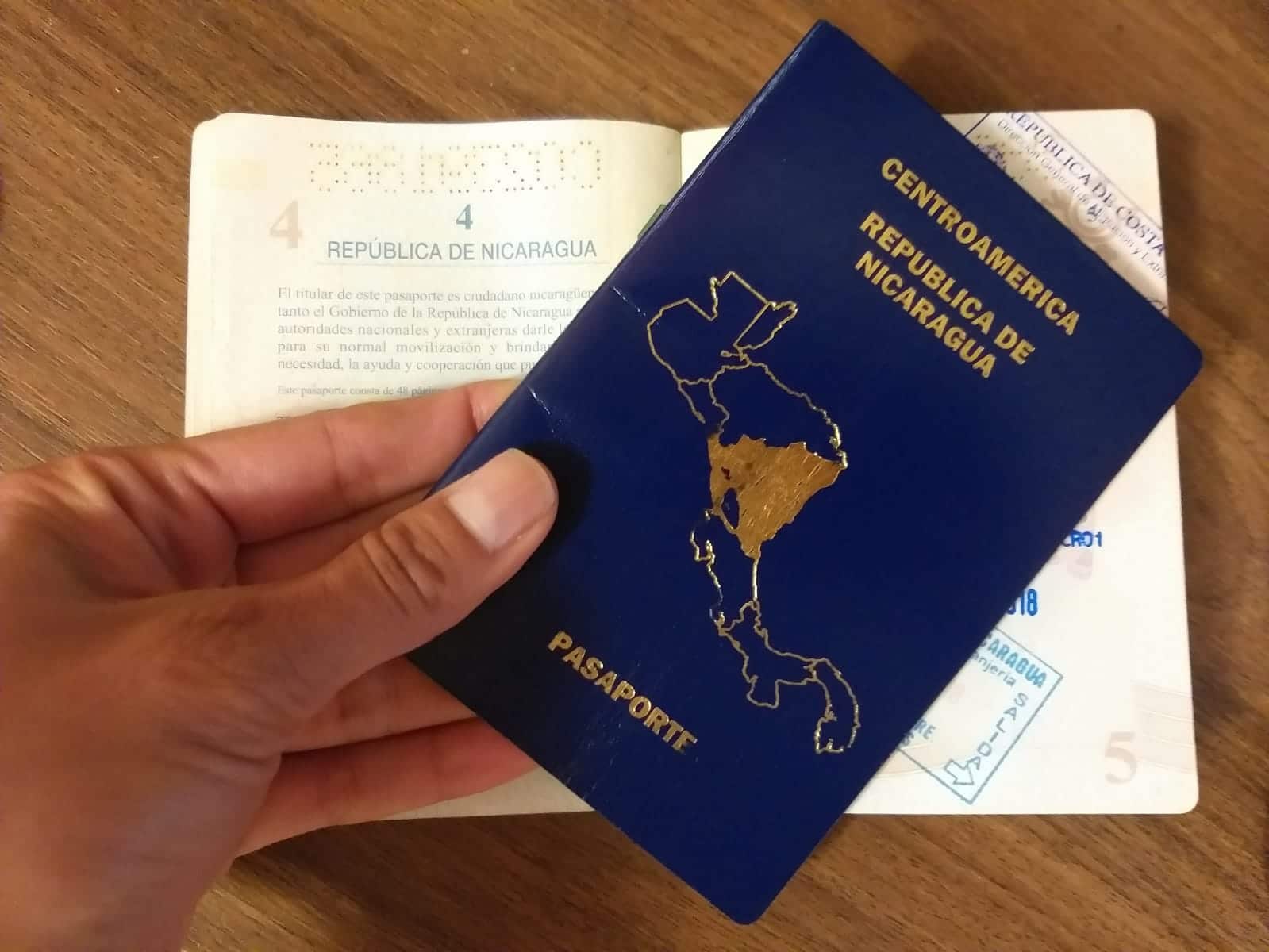
Nicaragua: Public Employees Hindered from Traveling to USA

PUBLICIDAD 1M
PUBLICIDAD 4D
PUBLICIDAD 5D
In urban areas, migrants and refugees have gotten infected because they cannot stay at home and live in overcrowded areas
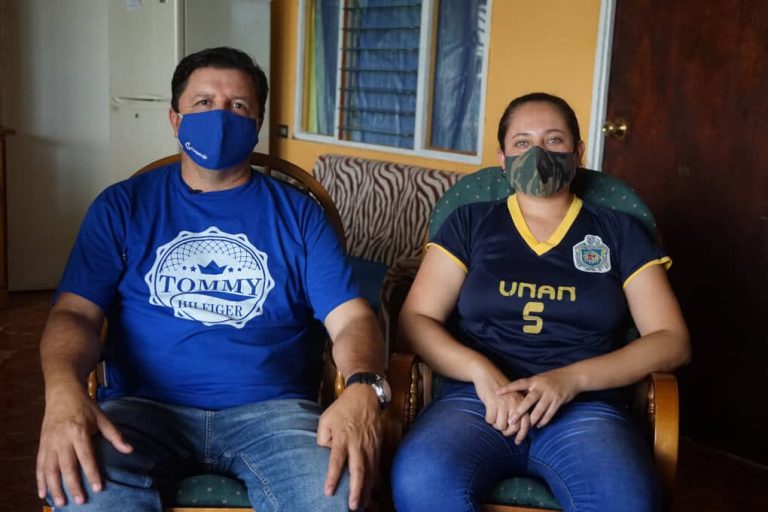
Marvin Rocha and his daughter Liz. Both were infected with covid-19, as did the rest of their family. They followed all the prevention rules, but they couldn't stay home. // Photo: Cindy Regidor
In a small apartment on the second floor of a house made out of zinc sheets, located in one of the most populated areas of San José, Costa Rica, is where Marvin Alberto Rocha, 51, his wife Olivia, their daughters Liz and Lais, and their son-in-law live.
This Nicaraguan family, originally from Jinotepe, Carazo, went into exile in Costa Rica two years ago due to the political persecution that the Government of Daniel Ortega unleashed in 2018 against protesters who demanded an end to state repression and his departure from power.
The Rocha family got involved in protests, barricades, and citizen resistance activities. They had to cross the border through “blind spots” out of fear of being arrested and detained in the “Operation Clean-up”, which consisted of brutal attacks by paramilitaries who dismantled the roadblocks with weapons of war and was carried out in the Carazo department on July 8.
The first 20 months were very difficult. Upon arriving in San José, they slept in the famous La Merced Park, then on the porch of a house where they were accommodated at night, and ate at the Casa Hogar María Auxiliadora.
Liz Rocha, Marvin's daughter, says that her mother was the first to obtain a permanent job, while her brothers and her father had temporary jobs. This made it easier for them to rent a place to live in. They have lived in La Libertad 2, a neighborhood in the Pavas district of San José, for more than a year.
At the beginning of this year, they were a bit more established, and in February they had started a nacatamales (Nicaraguan dish) business called Nacas Nicas which was well-received until Covid-19 arrived.
The Rocha Gutiérrez family was part of the statistics of those infected with the coronavirus in August this year. "My mother was the first. She had a headache, back pain ... we shared everything with her, my father hugged her and that's where he got it, and I did too," says the young woman.
Her sister Lais was the next one to develop symptoms: headaches, fever, and shortness of breath. The only one who had no symptoms was her brother-in-law.
"We quarantined twice. We had the first quarantine when my mother got sick and then we had to admit my father to the hospital and then we had another (quarantine) ... we spent a month without going to work."
Marvin even spent time in the Intensive Care Unit for 12 days due to his poor health. "I cried a lot and prayed to God as well because that is when one's faith is tested. When you are watching the dead come out every day, you believe that you will also end up dead," he says, emotionally.
“Here at home it was an atmosphere of mourning because my dad was in phase 3. His organs were swollen and he couldn't breathe. We thought they'd call us and say: come to check out the body,' ”Liz recalls.
Yahaira Bonilla also feared for the life of a relative. She migrated to Costa Rica over 21 years ago together with her husband and children in search of job opportunities and greater economic stability. Just like the Rocha family, they live in Pavas, in the Lomas del Río neighborhood. "My husband had it, but thank God he was cured ... He got infected at work and as a result, his employers sent him to quarantine." Fortunately, he managed to recover at home, she says.
After exemplary handling of the coronavirus pandemic, with infections under control in the first months, today, Costa Rica is going through a second wave of Covid-19 infections that worries its inhabitants. Health authorities fear the rapid saturation of their health system, so they have called on the population to comply with hygienic and preventive measures.
Of the total amount of people infected, 20% corresponds to cases of foreigners, including Nicaraguans, who account for the majority of foreigners residing in Costa Rica.
In June there were outbreaks in the northern zone, where Nicaraguan people do agricultural work. Then there was an increase in infections in highly populated urban areas, where migrants reside. By July, the number of foreigners with coronavirus corresponded to a third of the infected population, explains the social researcher and specialist in Migration issues in Latin America, Carlos Sandoval.
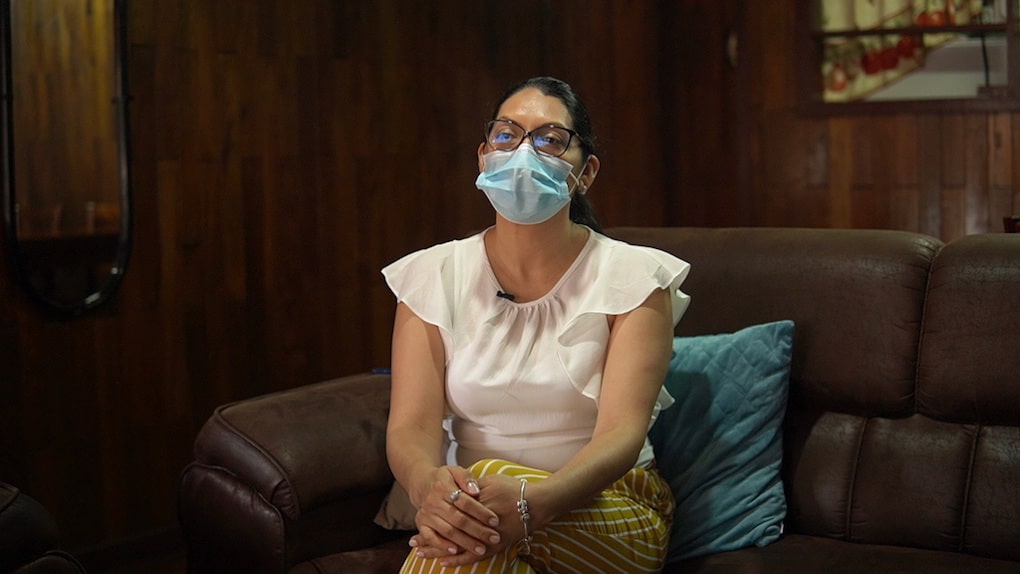
Nora Cruz, a Nicaraguan nurse based in Costa Rica. Photo: Cindy Regidor | Confidencial
Pavas is one of the districts with the highest registered cases of Covid-19 in Costa Rica, which is why it remains between red and orange alert, that is, with greater mobility restrictions dictated by the authorities. This area is populated by a large number of Nicaraguans who have been affected by the pandemic, such as the Rocha family and Yahaira's husband.
At the end of June, massive testing was carried out in this area of the capital to determine if there was community transmission. The Nicaraguan Nora Cruz, nursing supervisor at the Pavas Clinic in Coopesalud, participated in the screening. She has worked on the front line in the health crisis in Costa Rica and follows up on positive cases.
Cruz migrated to Costa Rica 17 years ago. She studied a Bachelor in Nursing at the National Autonomous University of Nicaragua, UNAN-Managua, and migrated with the objective of working in her field in the neighboring country. Today she is proud to be part of the public health system.
“Social Security doesn't leave people out. Children are cared for regardless of nationality or whether they have insurance or not… Now with the pandemic, people can get consultations, be evaluated, and get their treatment as if they were a Costa Rican citizen,” she explains.
"I think the Ministry of Health is being quite responsible, there really is no complaint. They are not taking into account if a person is a resident or not, or if he is a foreigner or not a foreigner," Marvin says.
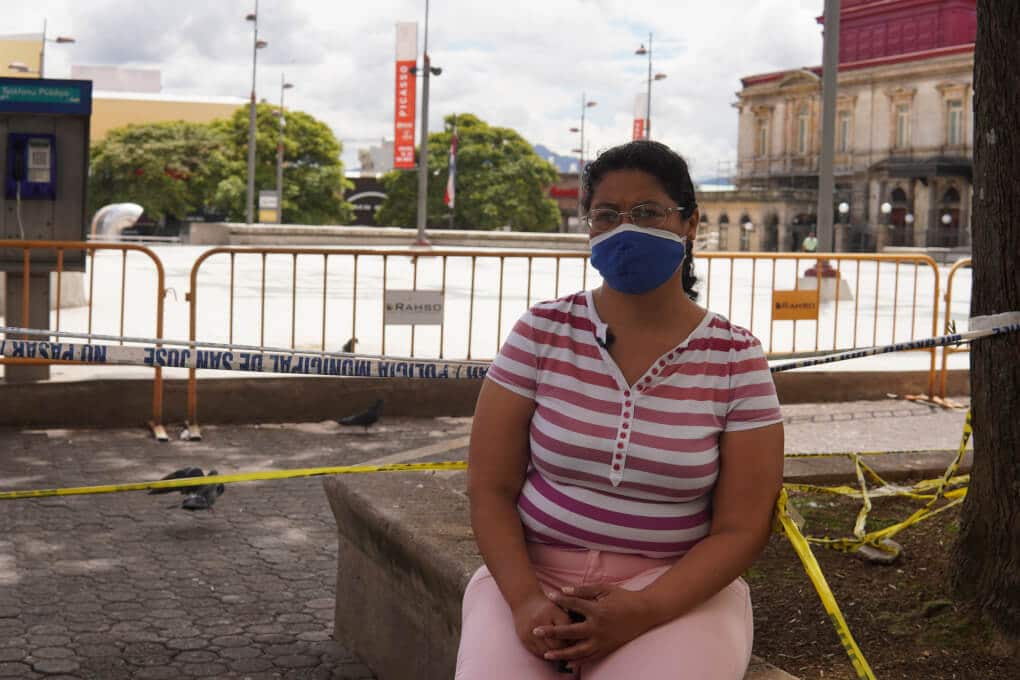
Yahaira Bonilla is a Nicaraguan migrant. Her husband caught COVID-19 in the workplace. Photo: Katherine Estrada | Confidencial
According to a census carried out by the Organization Techo Costa Rica in 2018, 52% of Nicaraguans live in overcrowding. This is a condition that makes them more vulnerable to the pandemic.
In July, The Costa Rican Social Security Fund (CCSS) detected that precarious areas were home to the majority of covid-19 patients.
Tests carried out in capital areas such as Alajuelita, La Carpio, Pavas, and Desamparados, where there are many people living in precarious conditions, identified a considerable number of positive cases, according to the executive president of the CCSS, Román Macaya.
“The housing conditions of people who live in precarious conditions are worrying. In this context, vulnerable sectors are even more vulnerable and, among them, the Nicaraguan community that lives with us, ”says Sandoval.
This is confirmed by Cruz, who indicates that beyond certain pathologies and chronic diseases, another condition that makes one vulnerable to covid-19 is living in overcrowding. Many families cannot practice distancing, because they live in “cuarterías” (buildings with several one-person rooms) which are small spaces, the majority of which are not divided into different rooms, with a considerable number of people.
“How was the first person who had the virus going to isolate himself? We use the same bathroom, we are in the same environment, we couldn't keep that isolation, ”says Liz.
Despite the conditions in which they live within the precarious neighborhoods, Nicaraguan families abide by hygiene and prevention measures. “We take the measures very seriously, before and after being affected. Here in the house using alcohol, chlorine to disinfect, washing hands, a mask… The only rule that we could not comply with was not to leave the house, because we had obligations here, we do not have our own house, we had to go out to find work, ”adds Marvin.
"We maintained hygienic measures, whoever came in and out carried their alcohol gel, whoever entered the house bathed, changed clothes, went straight to the washing machine, changed shoes, everything, the mask was never missing", Yahaira says.
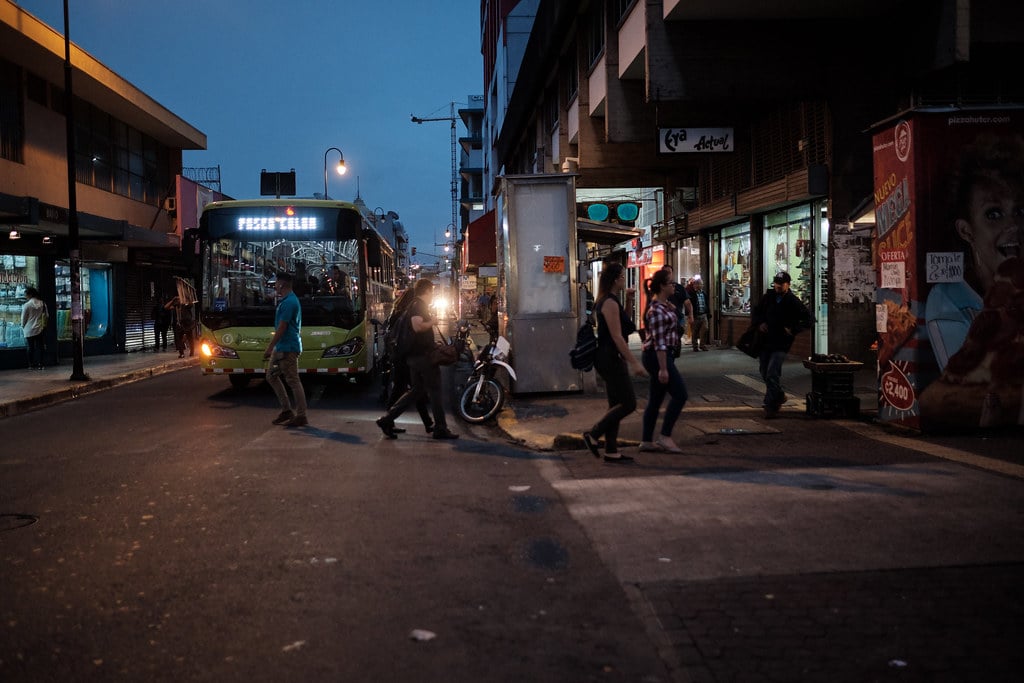
Photo: Streets of the center of San José. Carlos Herrera | Confidencial
The pandemic has led to a 24% increase in unemployment in Costa Rica. Nicaraguans have been among the most affected since they carry out informal jobs in which their payments and hours are reduced, while others lost their jobs.
Before catching the infection, Marvin did temporary construction jobs but was never rehired.
“It was difficult for me to find work when we came. I was working at a survey company for a year, but with the pandemic, they fired me, ”says Liz.
Yahaira says that after the quarantine and having overcome the virus, her husband was no longer called by his work and the company closed.
Undocumented migrants are not eligible for the Proteger bonus, an economic aid that the Government offers to residents and nationals in Costa Rica who lost their jobs in the midst of the pandemic.
Many seek support through solidarity associations, private companies, or start businesses. Yahaira, for example, weaves and sells blouses, makes cakes, baked goods for other Nicaraguan women who order her products for different celebrations. The Rocha family has retaken Nacas Nicas and sell the nacatamales that they prepare weekly.
Migrants and refugee applicants have been affected by the postponement of legal immigration procedures due to the pandemic.
“We are requesting asylum, and covid has come to postpone everything. Right now my work card has expired ”, says Liz.
Yahaira's residency document will soon expire. "I have permanent residence, but I have to go to Nicaragua to bring a document to obtain the renewal, but I cannot go because of the pandemic and I do not have the 150 dollars to pay the entrance."
She is referring to the covid-19 test with a negative result that the Government of Nicaragua requires, including Nicaraguan citizens. Meanwhile, although the Costa Rican government does not require a negative test from its citizens or residents, it has not yet opened the land borders, so she could only return on a commercial, private, or repatriation flight.
Xenophobia towards Nicaraguans has been exacerbated amid the pandemic. "Xenophobia is not new here, and the pandemic has made the scenario even more complex," says Sandoval.
"It has become difficult to find work and support since they tell us that we bring the virus," says Yahaira. "People do not give us work thinking that we have Covid, and it's worse if someone says that he or she ‘comes from Pavas'. That is where discrimination begins ... they are afraid that we will come to their houses with the virus," she adds.
“I wonder why in Costa Rica they differentiate between cases of coronavirus in nationals and in foreigners… that is like giving space to discrimination. The media is feeding that notion because they mention ‘foreigners here, foreigners there’, they give rise to doubt, so that Ticos think Nicas are the only ones, ”says Liz.
Cruz clarifies that the virus does not discriminate. "It can hit a Costa Rican like a foreigner, a professional like a construction worker, and the fact is that all those infected have different profiles, different jobs," she adds.
For Sandoval, it is important to recognize the interdependence between the Nicaraguan and Costa Rican communities, that is, to recognize the contributions of one to the other and that both need each other. She remembers also the importance of understanding that we are united by the territory and more importantly, by the economy and by families.
This article has been translated by Ana Maria Sampson, a Communication Science student at the University of Amsterdam and member of our staff*
Archivado como:
PUBLICIDAD 3M
Periodista nicaragüense exiliada en Costa Rica. Se ha especializado en la cobertura de temas de migración, género y salud sexual y reproductiva. También ha trabajado en Marketing y Ventas y ha sido Ejecutiva de Cuentas.
PUBLICIDAD 3D